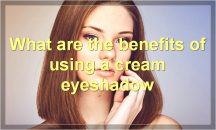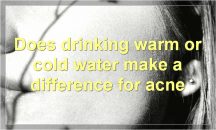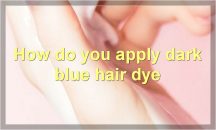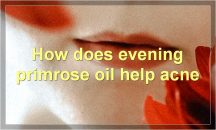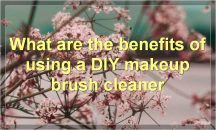How can I remove acne scars
Acne scars are a common skin condition that can occur after someone has had a breakout. There are many different ways to treat acne scars, but not all of them are equally effective. Some home remedies may help to fade acne scars, but it is important to consult with a dermatologist before trying any new method.
There are two main types of acne scars: hypertrophic and atrophic. Hypertrophic scars are raised and often red or dark in color. They can occur anywhere on the body but are most common on the face, chest, and back. Atrophic scars are depressed and usually have a white or pale appearance. They can also occur on any part of the body but are most common on the face.
There are many different treatments for acne scars, but not all of them are equally effective. Some home remedies, such as lemon juice or vitamin E oil, may help to fade scars over time. However, it is important to speak with a dermatologist before trying any new method, as some home remedies may actually worsen scarring.
Dermatologists often recommend one of three main treatments for acne scars: laser treatment, excision, or dermabrasion. Laser treatment uses concentrated beams of light to break up scar tissue. Excisions involve surgically removing the scar tissue. Dermabrasion uses a rotating brush to sand down the top layer of skin, which can help to smooth out scars.
No matter what type of acne scar you have, it is important to consult with a dermatologist before trying any new treatment method.
What are the best over the counter products for acne removal
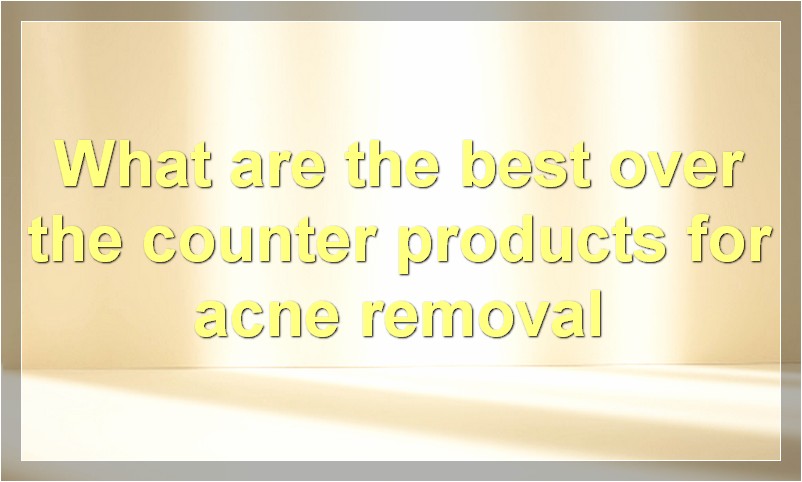
When it comes to acne removal, there are a variety of over the counter products that can be effective. However, it is important to choose the right product for your skin type. For example, those with oily skin may want to consider a gel or foam cleanser, while those with dry skin may want to opt for a creamier option. Additionally, it is important to consider a product that contains Benzoyl peroxide or salicylic acid, as these ingredients are known to help fight acne. Here are some of the best over the counter products for acne removal:
CeraVe Foaming Facial Cleanser: This cleanser is suitable for all skin types, but is especially beneficial for those with oily skin. It contains ceramides and hyaluronic acid, which help to restore the skin’s barrier and retain moisture. Additionally, it contains niacinamide, which can help to reduce inflammation.
La Roche-Posay Effaclar Medicated Gel Cleanser: This gel cleanser is ideal for those with oily or acne-prone skin. It contains 2% salicylic acid, which helps to unclog pores and reduce pimples. Additionally, it includes zinc pidolate, which helps to soothe the skin and reduce redness.
Neutrogena Oil-Free Acne Wash Pink Grapefruit Facial Cleanser: This refreshing facial cleanser is great for those with oily skin. It contains 2% salicylic acid to help fight breakouts and prevent new ones from forming. Additionally, it includes grapefruit extract and vitamin C, which help brighten the skin and improve its overall appearance.
Proactiv+ Skin Smoothing Exfoliator: This exfoliating cleanser is designed for use on both the face and body. It contains smooth beads that help to slough away dead skin cells and unclog pores. Additionally, it includes glycolic acid, which helps to brighten the skin and reduce the appearance of wrinkles.
Differin Adapalene Gel 0.1%: This gel is suitable for both oily and dry skin types. It contains retinoids, which help to unclog pores and reduce inflammation. Additionally, it can help to improve the appearance of fine lines and wrinkles.
How can I prevent acne breakouts
Acne is a skin condition that affects millions of people around the world. Although it is most common in teenagers, it can affect people of all ages. Acne occurs when the pores of the skin become clogged with dead skin cells, oil, and bacteria. This can lead to blackheads, whiteheads, and pimples.
There are many factors that can contribute to acne breakouts, such as genetics, hormone levels, diet, stress, and certain medications. While there is no surefire way to prevent acne, there are some things you can do to reduce your risk of developing this skin condition.
Here are some tips for preventing acne breakouts:
1. Keep your skin clean. Wash your face twice a day with a gentle cleanser. Avoid scrubbing your skin too hard, as this can irritate the pores and make acne worse.
2. Exfoliate regularly. Gently exfoliating your skin helps to remove dead skin cells that can clog the pores and cause breakouts.
3. Use non-comedogenic products. Non-comedogenic means that a product will not clog the pores. Look for makeup, sunscreens, and moisturizers that are labeled non-comedogenic or oil-free.
4. Reduce stress. Stress can trigger or worsen acne breakouts. Try to find ways to relax and manage stress effectively.
5. Eat a healthy diet. Eating a diet that is high in fresh fruits, vegetables, and whole grains can help to keep your skin healthy and may reduce your risk of developing acne.
What are the best home remedies for acne removal
Acne is a common skin condition that can affect people of all ages. There are many different home remedies that can help to remove acne, and these can be very effective. However, it is important to remember that not all home remedies will work for everyone, and some may even make your acne worse. If you are looking for home remedies for acne removal, here are some of the best options:
1. Tea tree oil: Tea tree oil is a natural antibacterial agent that can be very effective in treating acne. You can apply tea tree oil directly to the affected area using a cotton ball or Q-tip, or you can add a few drops to your regular facial cleanser.
2. Apple cider vinegar: Apple cider vinegar is another natural antibacterial agent that can be used to treat acne. You can apply it directly to the affected area using a cotton ball or Q-tip, or you can add a few tablespoons to your bathing water.
3. Lemon juice: Lemon juice is rich in citric acid, which has natural astringent properties. You can apply lemon juice directly to the affected area using a cotton ball or Q-tip, or you can add it to your facial cleanser or toner.
4. Honey: Honey is a natural antiviral and antibacterial agent that can be very effective in treating acne. You can apply honey directly to the affected area, or you can mix it with other ingredients such as oatmeal or yogurt to create a mask.
5. Aloe vera: Aloe vera is a natural plant extract that has both anti-inflammatory and antimicrobial properties. You can apply aloe vera gel directly to the affected area, or you can add it to your facial cleanser or moisturizer.
If you are looking for home remedies for acne removal, these are some of the best options available. Remember to test any new remedy on a small area of skin before applying it to your entire face, and discontinue use if you experience any irritation.
How can I get rid of acne fast
Acne is one of the most common skin conditions, affecting millions of people worldwide. There are many different treatments available, but finding the right one can be a challenge. Some people may find that over-the-counter products are sufficient, while others may need to see a dermatologist for prescription medications. Here are some tips to help you get rid of acne fast.
1. Keep your skin clean. This is one of the most important things you can do to prevent and treat acne. Wash your face twice a day with a mild cleanser and warm water. Avoid scrubbing your skin too hard, as this can irritate and worsen acne.
2. Use an over-the-counter acne treatment. There are many different products available, so it may take some trial and error to find one that works for you. Be sure to follow the directions carefully and apply the product to all areas of your face affected by acne.
3. Try a prescription medication. If over-the-counter treatments aren’t working, talk to your dermatologist about prescription options. There are many effective medications available, including oral antibiotics and topical retinoids.
4. Make lifestyle changes. Certain lifestyle factors can contribute to acne, such as stress, diet, and hormones. Taking steps to reduce stress, eating a healthy diet, and avoiding triggers like greasy foods or dairy products may help improve your acne.
5. See a dermatologist. If you’ve tried self-care measures without success, it may be time to see a dermatologist for more aggressive treatment options. Dermatologists can prescribe stronger medications and provide other treatments, such as light therapy or chemical peels.
What is the best way to treat acne
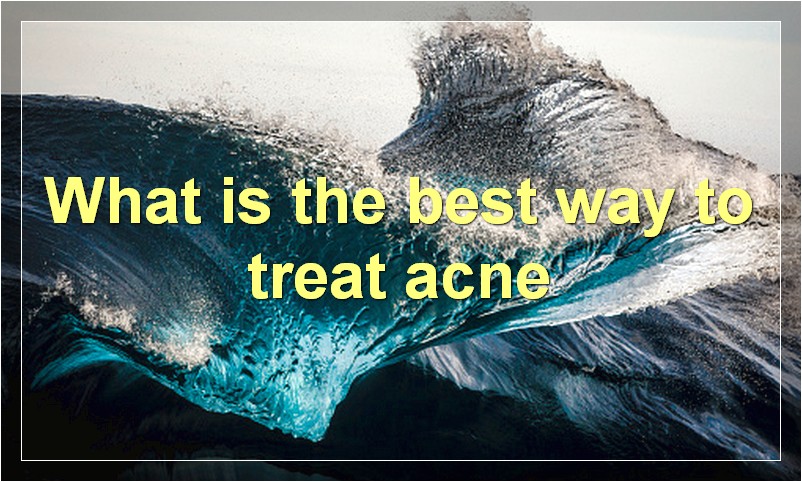
Acne is a very common skin condition that affects people of all ages. While there is no one definitive answer to the question of how to best treat acne, there are certain things that can be done to help clear up the skin and prevent future breakouts.
One of the most important things to do when trying to clear up acne is to keep the skin clean. This means gently washing the face with a mild cleanser twice a day. It is also important to avoid scrubbing the skin too harshly, as this can irritate the already sensitive skin and make the acne worse.
In addition to keeping the skin clean, it is also important to use an acne treatment product that contains benzoyl peroxide or salicylic acid. These ingredients help to kill the bacteria that cause acne and also help to unclog the pores. There are a variety of over-the-counter acne products available, so it is important to experiment to find one that works well for your particular skin type.
If you are struggling with severe acne, you may want to consider seeing a dermatologist. A dermatologist can prescribe stronger medications, such as oral antibiotics or isotretinoin, which can be very effective in clearing up even the most stubborn cases of acne.
No matter what method you choose to treat your acne, it is important to be patient and consistent. It can take several weeks or even months for the treatments to take full effect and for the acne to completely clear up. However, by following these simple tips, you can help get rid of your acne and achieve clear, beautiful skin.
What are the different types of acne
There are different types of acne, each with different causes and treatments. The most common types are:
Blackheads and whiteheads: These are the most basic and common types of acne. They are caused when pores become clogged with sebum (oil), dead skin cells, and dirt. Blackheads are clogged pores that have a black or dark brown appearance, while whiteheads are clogged pores that have a white or light-colored appearance. Both types can be treated with over-the-counter medications, such as benzoyl peroxide or salicylic acid.
Papules: Papules are small, red, inflamed bumps that can occur when pores become clogged. They can be treated with over-the-counter medications, such as benzoyl peroxide or salicylic acid.
Pustules: Pustules are similar to papules, but they are larger and contain pus. They can be treated with over-the-counter medications, such as benzoyl peroxide or salicylic acid.
Nodules: Nodules are large, hard, painful bumps that occur deep within the skin. They can be treated with prescription medications, such as isotretinoin.
Cysts: Cysts are large, pus-filled bumps that occur deep within the skin. They can be painful and can lead to scarring. Cysts can be treated with prescription medications, such as isotretinoin.
What are the causes of acne
Acne is a very common skin condition that can affect people of all ages. There are many different factors that can contribute to the development of acne, including genetics, hormones, diet, and stress.
Acne occurs when the hair follicles become clogged with dead skin cells and oil from the skin. The bacteria that live on the skin can also get into the pores and cause inflammation.
There are many different treatments for acne, including over-the-counter medications, prescription medications, and home remedies. Some people may also need to have surgery to remove their acne.
How can I prevent acne scars
Acne scars are a common skin condition that can occur after someone has had a breakout. There are many different ways to prevent acne scars, and the best method depends on the individual’s skin type and scarring pattern.
Some people may need to use multiple methods to prevent acne scars. For example, someone with very oily skin may need to use both mechanical exfoliation and chemical exfoliation to keep their pores clear. Others may only need to use one method.
The following are some ways to prevent acne scars:
1. Use a light cleanser
Cleansing your face is an important step in preventing acne scars. However, using a harsh cleanser can actually irritate your skin and make breakouts worse. Instead, opt for a gentle, non-comedogenic cleanser that won’t clog your pores.
2. Exfoliate regularly
Exfoliating helps to remove dead skin cells from the surface of your skin. This can help to prevent clogged pores, which can lead to breakouts. There are two types of exfoliation: mechanical and chemical.
Mechanical exfoliation uses physical means to remove dead skin cells, such as scrubs or brushes. Chemical exfoliation uses acids or other chemicals to dissolve the bonds between dead skin cells.
3. Use retinoids
Retinoids are derivatives of vitamin A that are available in both over-the-counter and prescription formulations. Retinoids help to improve the turnover of skin cells, which can help to prevent clogged pores. They also have anti-inflammatory properties that can help to reduce the redness and swelling associated with breakouts.
4. Apply sunscreen daily
Sun exposure can worsen acne scars, so it’s important to apply sunscreen every day, even if you don’t plan on spending time in the sun. Look for a sunscreen with an SPF of at least 30 that is labeled “broad spectrum” to protect against both UVA and UVB rays.
What is the difference between acne and rosacea
There are a few key differences between acne and rosacea. For starters, acne is caused by excess oil production and clogged pores, while rosacea is caused by inflammation. Acne can occur anywhere on the body, but rosacea is most commonly found on the face. Additionally, acne typically affects teenagers and young adults, while rosacea is more common in middle-aged adults. Finally, acne is treated with topical medications and often goes away on its own, while rosacea requires long-term management and may require oral medications.
